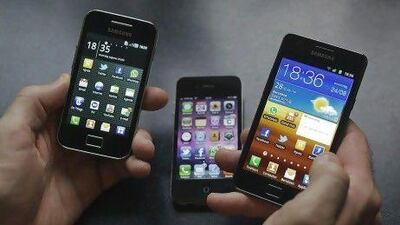Apple's ongoing multibillion-dollar legal battle with the South Korean electronics giant Samsung for allegedly copying the American computer manufacturer's iPhone and iPad technology and design is lifting the lid on hitherto hidden aspects of the IT industry.
Industry watchers have been shocked by the casual ease with which the big digital device makers habitually apparently stealrival technologies.
They are also astounded by the high proportion of their resources the big players spend on marketing and advertising rather than, as was once the case, on the pursuit of unique research and development of truly individual products.
In the cut-throat battle for global market share, it is apparent patents - along with their defence and monitoring of any infringement - are key to gaining and sustaining "first-mover" advantage for high technology companies.
"Even with huge penalties, being the first to put together the very best product using tech that has an infringement risk can still result in being the most profitable strategy, legal costs included," says Mark Little, an analyst at the research company Ovum.
He adds that all the big players know patent law can be challenged. "They have the money and the ego to take the gamble."
Apple, among others, now takes it for granted that its in-house designs and technologies will be routinely lifted by its competitors and only objects when it believes a rival has simply copied its ideas without any attempt to develop or modify them.
Tony Costa, an analyst in the United States at the international research company Forrester, says the most shocking revelation to emerge from the Apple-Samsung litigation is, given the number of people, designs, conversations and decisions involved in making their products, that "Samsung somehow ended up with a design that looked so similar to the iPhone".
Mr Costa believes, for Apple, the trial is about more than just Samsung. It is about the fundamental difference between copying and stealing.
"Steve Jobs [Apple's late co-founder] was known to quote Pablo Picasso in saying, 'Good artists copy, great artists steal.' Apple clearly believed that stealing, something Apple has admitted doing all the way back to the original Macintosh interface, is OK," he says. Copying, however, is not … By Apple's account, Samsung erred in failing to build on what the iPhone accomplished.
When Phil Schiller, Apple's senior vice president of worldwide marketing, took the stand during the ongoing Apple versus Samsung court battle, he also revealed Apple spent US$647 million (Dh2.37 billion) advertising the iPhone in the US alone from its release in 2007 through its fiscal year last year. For the iPad, which was launched in 2010, the sum was $457.2m.
"Apple's aggressive advertising spend is a reflection of its status as a consumer products company rather than a technology company," says Mr Costa.
It also transpires Jobs' proud boast that Apple did not rely on tools such as focus groups when developing new products was not entirely accurate. A survey of iPhone users in May last year has been filed as evidence in the patent battle, claiming the company's brand image is a decisive factor for customers in countries ranging from the US to China.
The patent battle has also revealed something of the "fight club" culture that contributes to the air of secretiveness now routinely adopted by corporations such as Apple.
Those responsible for developing Apple's iPhone are reported to have pinned the words "fight club" on the door to their office. It refers to the book and the film of the same name based on the theme of a club of which the first and second rules are that members do not talk about the club.
And it now looks as if the patent war taking place in the US may soon start to spread to other IT companies, offering the promise of yet more revelations.
"The aggressive defence, attack, and holding of technology patents is an increasingly familiar characteristic among our top tech giants and we predict the battles between them will break into the open more frequently than ever before," says Mr Little.
In Silicon Valley, word is the next big IT company to be challenged will be the internet giant Google.
In addition to its traditional search operations, Google has also developed the smartphone operating system (OS) Android in competition with Apple and is also making its own devices.
It is expected the patent war will continue to escalate after Apple brings out its next generation of products.
"The [Samsung case] is also a message to other competitors, most notably Google, which is responsible for the Android OS," says Mr Costa. "With the impending release of the iPhone 5, along with other rumoured products such as a 7-inch iPad and Apple TV, Apple is putting them on notice that future attempts to copy its products will no longer be tolerated."
Suing Samsung for $2.5bn in damages may only be the first hand in a high-stakes game Apple has started to play with its rivals.
"With over $100bn in the bank, Apple has more than enough cash to back up its threats," says Mr Costa.
twitter: Follow and share our breaking business news. Follow us
iPad users can read the digital edition of business section as it was printed via our e-reader app. Click here

